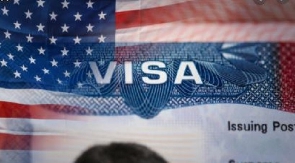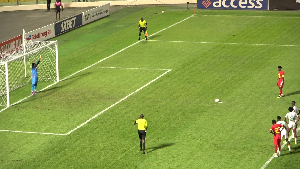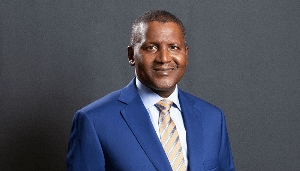The European Union (EU) would invest in the development of a 10 MW Photovoltaic power plant in the Northern Savannah Ecological Zone of Ghana.
Mr Jyrki Katainen, European Commission Vice President for Jobs, Growth, Investment and Competitiveness said the project when completed, would increase the number of private sector agri-business having access to affordable and reliable electricity.
He said the Union was delivering its investment with the use of two innovative financial instruments: blending and guarantees.
“By blending, we use grants to help finance projects that often require financial input from several financial organsations. We simply ‘blend' our grant with loans from other organisations,” Mr Katainen stated on Thursday, in his presentation at the Council on Foreign Relations – Ghana’s Distinguished Guest Public Lecture Series in Accra.
“The EU can no longer solely finance complex and large infrastructure projects but it can mix out grants with loans.”
Speaking on the theme “Africa EU Alliance: a Relationship for the Future”, Mr Katainen said in Ghana, around 80 million euros of grants from the EU would have been mobilised to leverage around 750 million euros of total investment projects in the area of energy transport and agriculture.
He said this was all productive investment to boost competitiveness, raise productivity and address the most pressing needs of the private sector enterprises, which in turn would positively affect job creation and
sustainable development.
He said the EU had strengthened the West African Power Pool (WAPP) system through the construction of 210 km of 225 kV power transmission lines from Bolgatanga (Ghana) to Ouagadougou (Burkina Faso) to export energy generated in Ghana at a lower cost to Burkina Faso. With regards to boosting investment and funding, Mr Katainen, who is on a two-day official visit to Ghana and Togo said: “We believe that the key issue is to de-risk it, and to achieve that, we have proposed the EU External Investment Plan to boost investment”.
“Experience under the External Investment Plan 3, through the programmes currently in the pipeline in SubSaharan Africa and the EU Neighbourhood, we have mobilised 37.1 billion euros of public and private
investment since 2017 and we are well on track to achieve the 44 billion euros by 2020,” he said.
Mr Katainen said the EU wants to do much more after 2020, with the aim of moblising up to 500 billion euros of leveraged investments and grants between now and 2027.
“At the same time, our support to the private sector is increasing significantly, in particular through the EU’s ElectriFI instrument: REDAVIA, where we have invested two million euros to offer rental solar power for
businesses and communities.”
He said another example was PEG Africa, an off-grid asset financing company, distributing pay-as-you-go solar home technology to consumers who lack both access to reliable electricity and formal banking
services.
He said PEG has over 55,000 customers, over 400 full-time staff and 72 service centres across Ghana, Cote d’Ivoire and Senegal.
Mr Katainen said the EU-ElectriFI would provide five million euros, representing 20 per cent of the financing required to grow the customer base up to around 128,000 customers; declaring that, it means providing
access to electricity to more than 640,000 people.
He mentioned NASIRA (Risk-Sharing Facility), the first guarantee tool signed last December, offering a total envelope of 750MEUR investment across Sub-Saharan Africa, including Ghana.
Its aim is to create 800,000 jobs and boost access to finance for those who usually struggle to get it, such as migrants, youth and women.
Mr Katainen said Ghanaian local banks would benefit from those guarantees, which would allow them to invest in probably one of the cutting-edge ideas that would otherwise be too risky for them to support.
He said boosting access to electricity and ensuring affordability was one of the pillars of a rapid response action plan of the Government to improve business environment.
Business News of Saturday, 15 June 2019
Source: GNA

















